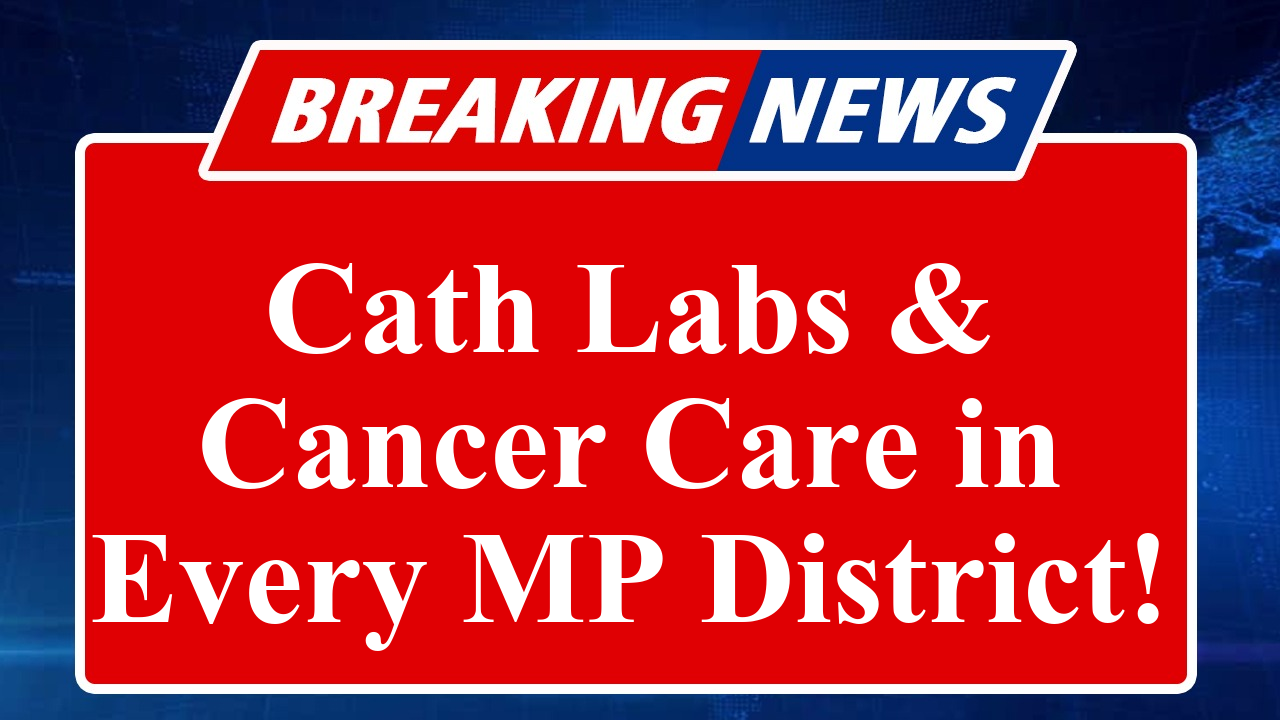“India is transforming healthcare access with plans to establish cath labs and cancer centers in every parliamentary district. The initiative, backed by significant investments, aims to address rising cases of heart disease and cancer, offering advanced diagnostics and treatment closer to home. States like Telangana and Uttarakhand are leading the charge, with new facilities enhancing care for millions.”
India’s Bold Plan to Revolutionize Healthcare Access
The Indian government is spearheading an ambitious healthcare transformation, aiming to establish catheterization laboratories (cath labs) and cancer care centers in every parliamentary constituency across the country. This initiative seeks to bridge the gap in access to advanced medical care, particularly for critical conditions like heart disease and cancer, which are on the rise. With non-communicable diseases such as cardiovascular ailments and cancer becoming leading causes of mortality, this move is poised to bring specialized treatment to millions, especially in underserved regions.
In Telangana, Health Minister Damodar Rajanarasimha recently announced the establishment of cancer care centers in every district to tackle the alarming annual rise of 50,000 to 55,000 new cancer cases. These centers, integrated within teaching hospitals, will offer comprehensive services, including screening, early diagnosis, chemotherapy, and palliative care. This initiative underscores the state’s commitment to addressing the growing cancer burden by decentralizing specialized care and making it accessible at the district level.
Similarly, Uttarakhand is making significant strides under the Dhami government, which marked its fourth anniversary by inaugurating new medical facilities. The state has introduced a 300-bed cancer hospital in Harrawala, Dehradun, and approved an AIIMS satellite center in Kichha, with construction progressing rapidly. Additionally, the Ayushman Bharat scheme has issued around 60 lakh cards in Uttarakhand, enabling beneficiaries to access free treatment up to ₹5 lakh annually for critical illnesses like cancer and heart disease at over 30,000 hospitals nationwide. Chief Minister Dhami emphasized the goal of creating a robust healthcare network at the district and tehsil levels, reducing the need for patients in hilly areas to travel to major cities for treatment.
The push for cath labs, essential for diagnosing and treating heart conditions, is equally significant. Kerala, for instance, has installed 12 new cath labs in district hospitals, a marked improvement from none under the previous regime, as part of its efforts to bolster tertiary care. These facilities enable procedures like angioplasty and stent placement, critical for managing heart attacks and other cardiac emergencies.
Nationally, the healthcare sector is witnessing a surge in investment, particularly in private hospital chains. Manipal Health Enterprises, backed by Singapore’s Temasek, has bid ₹6,838 crore for Sahyadri Hospitals, signaling strong investor confidence in India’s healthcare growth, especially in non-metro areas like Lucknow, Jaipur, and Guwahati. This consolidation is driven by rising demand for quality care and medical tourism, with a World Health Organization report highlighting India’s need for 100,000 additional hospital beds in the next 5–7 years to meet the growing burden of non-communicable diseases.
Innovative technologies are also shaping this healthcare revolution. In Mumbai, KEM Hospital has launched a BMC-funded clinical trial involving 7,000 women to test an AI-powered portable device with a high-resolution thermal sensor for breast cancer diagnosis. The trial, spanning 12 to 28 months, could redefine early detection methods. Similarly, Valentis Cancer Hospital is pioneering non-invasive CyberKnife S7 treatment for breast cancer, addressing the surge in cases with cutting-edge solutions.
The central government’s vision, articulated by Union Minister Jitendra Singh, emphasizes India’s role as a global leader in health-tech innovation. Speaking at the Times Now Doctors Day Conclave 2025, Singh highlighted advancements like targeted radiation therapy for cancer and the Tata Memorial Centre’s 100% digital and cashless hospital system. The Ayushman Bharat program, coupled with public-private partnerships, is expanding access to last-mile clinics via telemedicine, ensuring even remote areas benefit from this healthcare overhaul.
States like Tamil Nadu and Delhi are also contributing to this transformation. Tamil Nadu’s Chief Minister M.K. Stalin recently inaugurated urban and primary health centers in Tirunelveli, while Delhi is establishing 10 integrated public health laboratories to enhance diagnostic support at primary health centers. These efforts reflect a nationwide push to integrate technology, expand infrastructure, and prioritize preventive and precision healthcare.
This healthcare revolution is not without challenges. In Kerala, despite progress, concerns about infrastructure fatigue and uneven quality across districts have surfaced, as noted in a recent National Sample Survey report. Moreover, the growing demand for specialized care requires sustained investment and trained personnel to ensure these new facilities operate effectively.
Disclaimer: This article is based on recent news reports and publicly available information from sources like Times of India, The Hindu, and Economic Times. Data and initiatives mentioned are subject to change as per government and institutional updates. For the latest developments, refer to official health ministry announcements.

